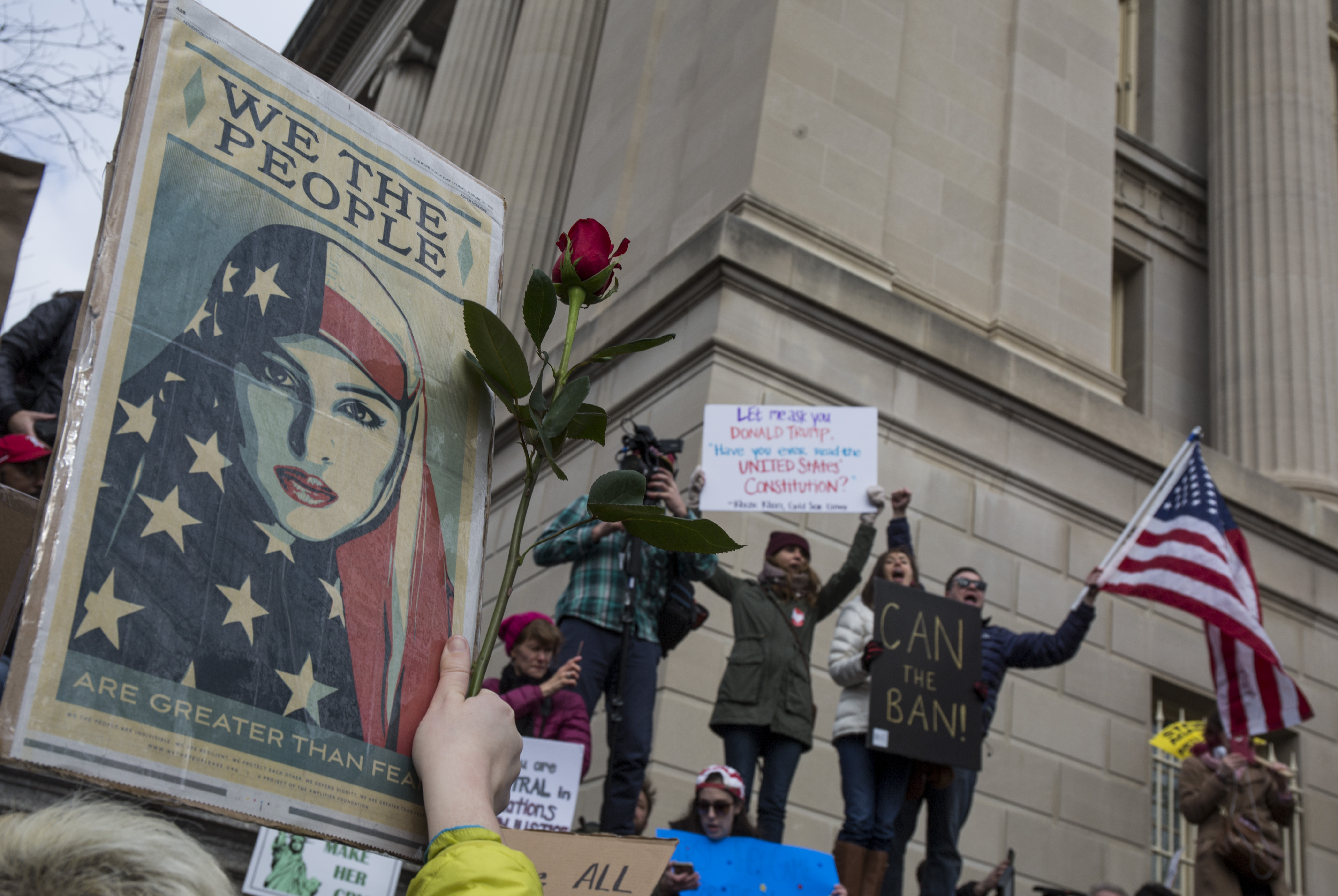The Courts Versus Donald Trump: The Latest on the Muslim and Refugee Bans

Since the White House announced an executive order on January 27 that put on hold the refugee program, ended refugee admissions from Syria, and suspended the provision of visas to nationals from seven Muslim-majority countries, we have witnessed a surge of opposition at airports, in city streets, and in courtrooms. The judicial branch has become an arena where the executive order continues to be challenged, showcasing the struggle between the extent of presidential authority in the face of the “checks and balances” provided by the legal system. Nearly 40 cases brought by states and aggrieved individuals are pending in federal courts around the country, according to the Civil Rights Litigation Clearinghouse at the University of Michigan Law School.
Over the weekend, a dramatic scenario played out after a Seattle federal judge granted a nationwide temporary restraining order against the implementation of the executive order. On Friday (February 6), Judge James L. Robart heard a complaint brought by the states of Washington and Minnesota against the implementation of the executive order. Robart, who was nominated by George W. Bush, found that the executive order created “immediate and irreparable injury” to the two states, whose residents were adversely affected in terms of “employment, education, business, family relations and freedom to travel" as a result of the bans in the executive order. Additionally, Robart applied the restraining order nationwide, meaning that government officials were banned from enforcing provisions of the executive order not only in Washington state and Minnesota but at all airports and land-based points of entry. [Watch the court hearing here].
Advocates hailed Robart’s decision as the White House and President Trump denounced it. On Saturday (February) 4, the Department of Justice filed an emergency motion with a federal appeals court to stop the temporary restraining order. The government argued that Robart’s injunction “second-guesses the president’s national security judgment about the quantum of risk posed by the admission of certain classes of aliens and the best means of minimizing that risk.” The Ninth Circuit Court of Appeals denied the emergency motion until it could review the issues fully, and asked the government and the states of Washington and Minnesota to submit legal briefs by February 6.
For his part, President Trump has continued to tweet his opinions on the matter:
The opinion of this so-called judge, which essentially takes law-enforcement away from our country, is ridiculous and will be overturned!
— Donald J. Trump (@realDonaldTrump) February 4, 2017
Just cannot believe a judge would put our country in such peril. If something happens blame him and court system. People pouring in. Bad!
— Donald J. Trump (@realDonaldTrump) February 5, 2017
In response to the Seattle decision, the Department of Homeland Security has suspended all implementation of the executive order to comply with the nationwide temporary restraining order. According to the American Immigration Lawyers Association and the International Refugee Assistance Project (IRAP) at the Urban Justice Center, valid visas that were revoked or canceled in light of the executive order are valid for travel again.
The Ninth Circuit's decision in States of Washington and Minnesota v. Trump should have a significant impact on litigation pending in other federal courts, and may take into consideration one decision in favor of the government ordered by federal Judge Nathaniel M. Gorton in Boston last Friday.
Meanwhile, the public pressure and resistance continues to mount with Yemeni shop owners shutting down 1,000 bodegas in New York City last week, airport protests and efforts to #tracktheban and its impact on social media.
